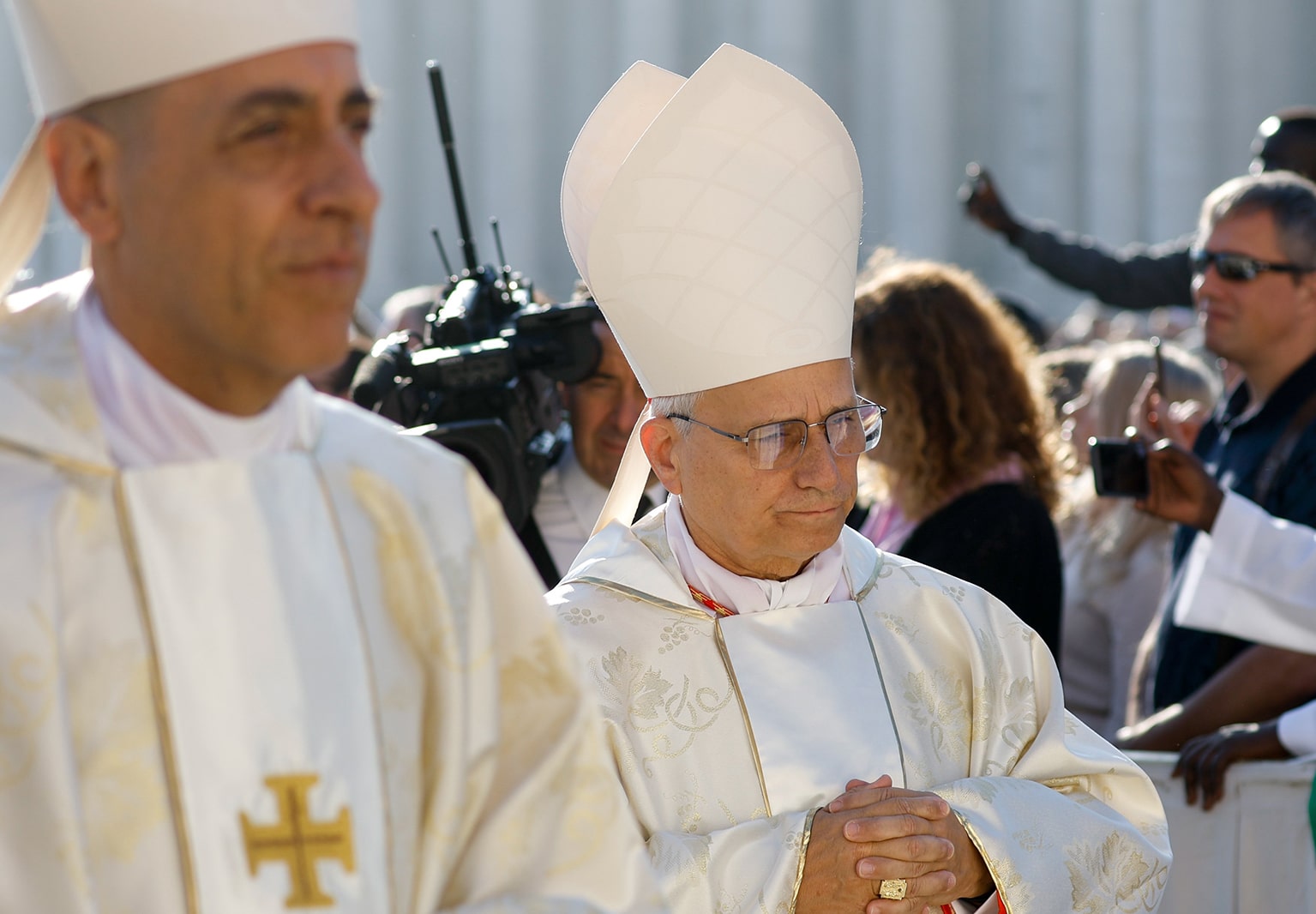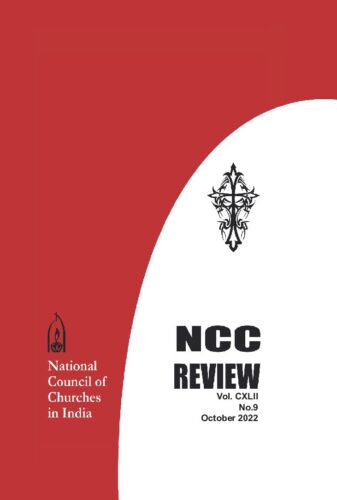Last week, an Italian reporter asked the Dicastery for the Doctrine of the Faith’s prefect, Cardinal Victor Fernández, if “Fiducia Supplicans,” the 2023 declaration that allows priests to bless people in same-sex relationships, would be shelved under Pope Leo XIV.
It is not clear what prompted the question. Of all the reforms enacted by Pope Francis, “Fiducia” is not among the most sweeping. Even among critics of the late pope, who are hoping that they have a more sympathetic ear in Leo, energy seems to be more directed at overturning restrictions on the Latin Mass.
Nevertheless, at least one vocal opponent of “Fiducia” has renewed his opposition to the document. When the Vatican released the document in late 2023, it received fierce pushback from some quarters of the church, especially many bishops’ conferences in Africa, which organized to say they would prohibit priests from offering such blessings. (Bishops in South Africa, Algeria, Libya, Morocco, Tunisia and Western Sahara disagreed, allowing blessings in some circumstances, while some African theologians tried to nuance the discussion around blessings.) This contributed to the Vatican’s decision to carve out exemptions and even qualify its initial announcement. (Initially, it appeared the decree allowed priests to bless same-sex couples, but after the uproar, the D.D.F. clarified that the document allowed priests merely to bless individuals in same-sex relationships rather than the couples themselves, which was presumably allowed before the release of the document.)
It appears to be some influential church leaders’ hope that our new pope, who has yet to make any statements or gestures about where he stands on LGBTQ issues, might further scale back one of his predecessor’s signature pieces of outreach to the LGBTQ Catholic community.
Earlier this month, Cardinal Fridolin Ambongo Besungu, O.F.M.Cap., who leads the Symposium of Episcopal Conferences of Africa and Madagascar, told EWTN that “Fiducia” had been “imposed from outside on a people that has other priorities.”
“The pastoral priority for us is not a problem of gay people, it’s not a problem of homosexuality. For us, the pastoral priority is life: How to live, how to survive,” he said. Pastoral care for homosexuals are issues “for you here in Europe, not for us in Africa.”
Cardinal Ambongo, the key player in pushing the Vatican to exempt African bishops from implementing the reforms in “Fiducia,” noted in his interview with EWTN that bishops from other places, including Eastern Europe, had also sought out exemptions. “It’s not just an African exception,” he said, adding that homosexuality is a “doctrinal, theological problem.”
But when reporter Franca Giansoldati broached the subject with Cardinal Fernández, he was quick and clear. Asked while he was leaving the press office if the document would be shelved, the cardinal responded, “I don’t think so, the declaration will remain,” Il Messaggero reported.
For more than a decade, many LGBTQ Catholics felt like they had an ally in Pope Francis—someone standing up for the community in the Vatican. The late pope’s meetings with LGBTQ people and his kind words, both off the cuff and in some church documents, made some of the more challenging statements from Vatican offices go down more smoothly. Yes, he may have uttered a slur about gay priests—twice!—but many of us felt like we knew where his heart lay.
With Pope Leo, LGBTQ people have few clues, making comments from Cardinal Ambongo and Cardinal Fernández carry even more weight.
Pope Leo made comments in 2012 that were hostile toward LGBTQ people, but in 2023, his views seemed to have shifted, appearing to welcome the new approach by Pope Francis. In May, he praised families built on the “stable union between a man and a woman.” This upset some LGBTQ Catholics, understandably hungry for any insight about the new pope’s views on LGBTQ issues. But Leo’s description of the family adheres to the church’s definition of marriage, and is in line with how Francis would describe family life.
For LGBTQ people eager to know where we stand with the new pope, this leaves frustratingly little to go on. Perhaps that is why Cardinal Fernández’s comments attracted attention. Even if his comments were made off the cuff in response to a reporter’s question, and even if the policy could change as easily as the Roman weather, LGBTQ Catholics perhaps breathed a sigh of relief: at least one of Francis’ generous gestures to the community would remain in place.
This sense of uncertainty as to where we stand in the life of the church can be disorienting for many LGBTQ Catholics. And ven though Francis’ words and gestures were celebrated, that uncertainty is why many of us had hoped he would concretize some of that welcoming spirit, perhaps with papal assertions around employment, the right to receive sacraments or even a more robust defense of blessing same-sex couples. While Francis did enact some changes, such as declaring that transgender people can be baptized and serve as godparents, that largely didn’t happen, so now we wait.
LGBTQ Catholics and those who love them must continue to be patient while we wait to see how Pope Leo will handle these difficult pastoral situations. But we can take some comfort in knowing that his chief doctrinal adviser, at least for now, seemingly wants to stay on the course charted by Pope Francis.




